Prince Edward Point National Wildlife Site is a great stop for nature lovers and birders alike. Located at the southeast point of Prince Edward County, Ontario, the Wildlife area is free to visitors and offers some great swimming beaches, a boat launch and a few hiking trails. Pack a picnic, some bug juice and your swimsuit and spend the day swimming and exploring this beautifully unique area.
We drove down from Presqu’ile Provincial Park to check out this National Wildlife area. There were very few other people there at the time, although we did get to take to one of the park rangers. There were privy toilets and that was about it for facilities. Signs were posted to warn visitors about poison ivy and ticks.
Songbirds and waterfowl are something you will definitely want to keep an eye open for. Be sure to have at least one person in your group equipped with a pair of binoculars to check out the variety of birds in the area.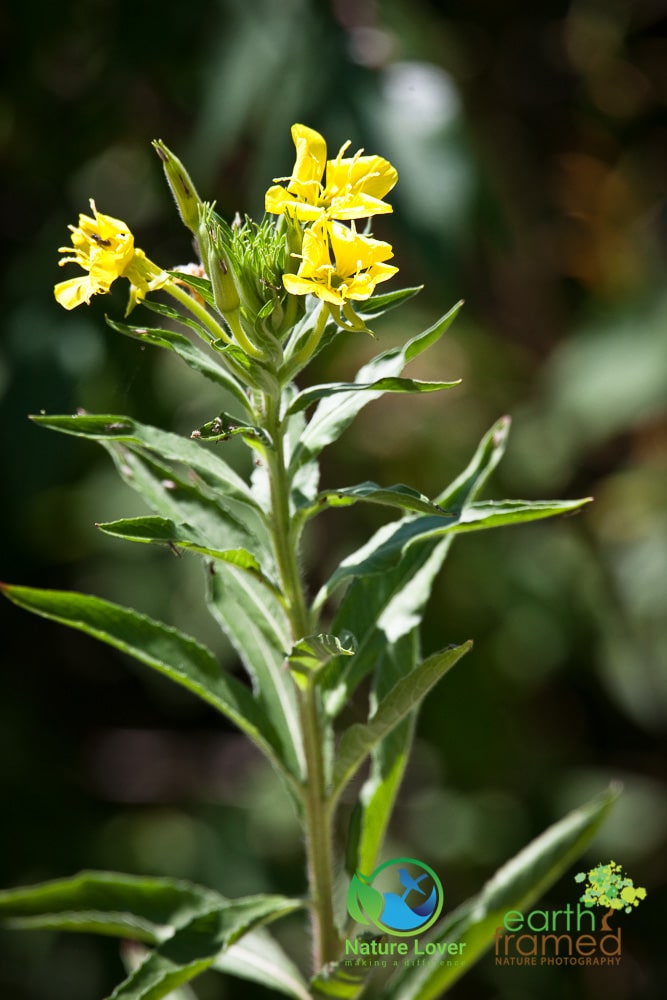
Wildflowers can also be spotted along the edge of the road and during your hike either on the hiking trails or the road out to the lighthouse. Above you can see a native Evening Primrose.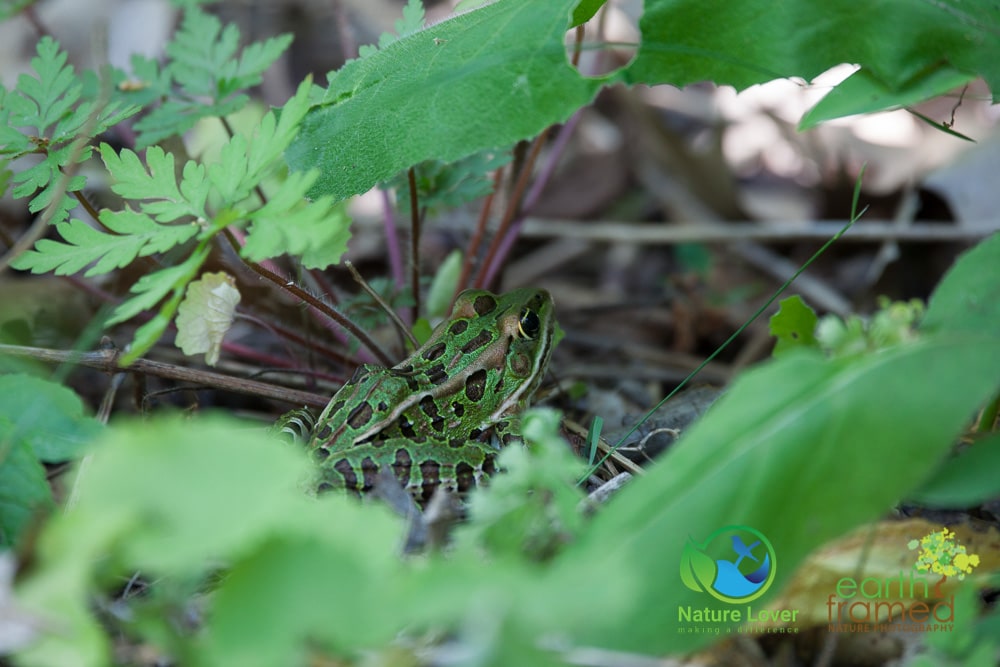
On our way out to the lighthouse we also spotted a few Leopard Frogs hiding in shading spots. These frogs can often be seen much farther from water than Green Frogs.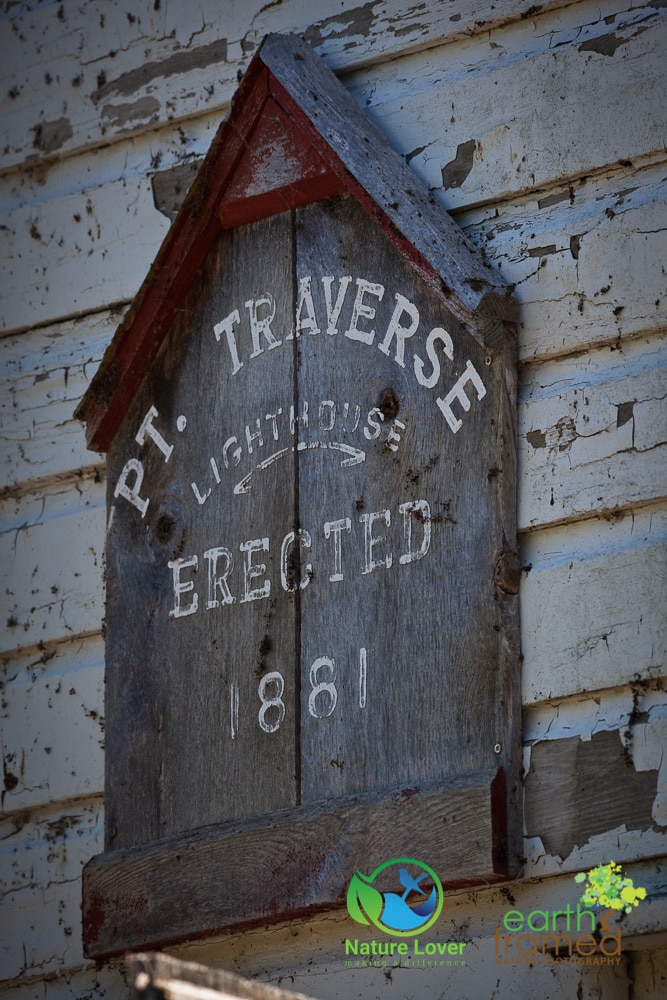
The derelict lighthouse has definitely seen better days. The sign tells us that it was originally erected in 1881 and has obviously had a number of upgrades to its exterior.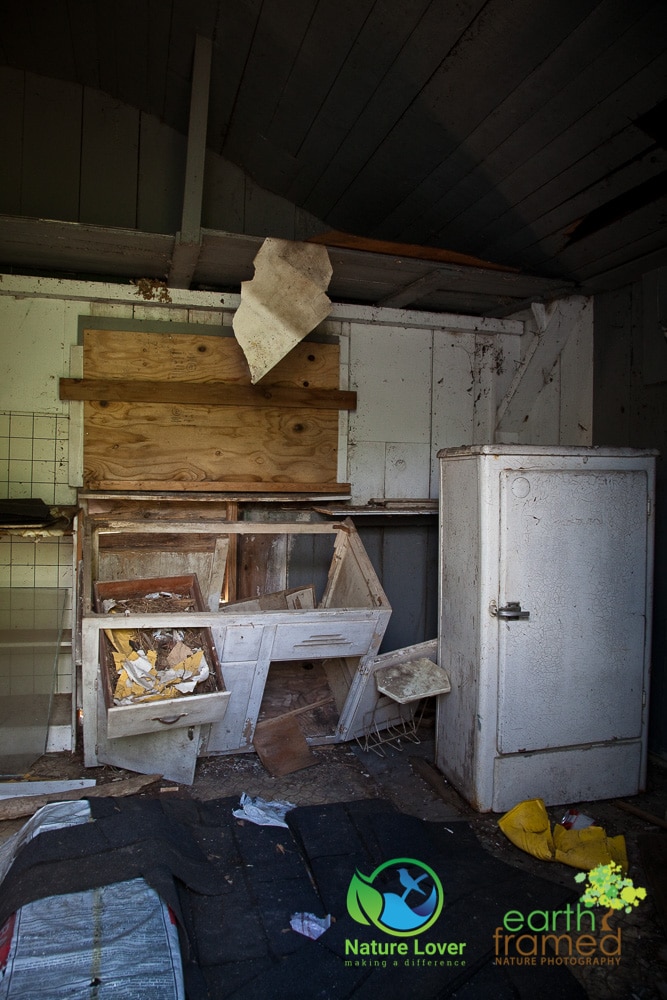
This is a shot of the inside of the lighthouse. I’m pretty sure the door to the lighthouse should have been bolted shut, although it was interesting to see inside. Perhaps it will be cleaned up some day because it is a really interesting, historical building.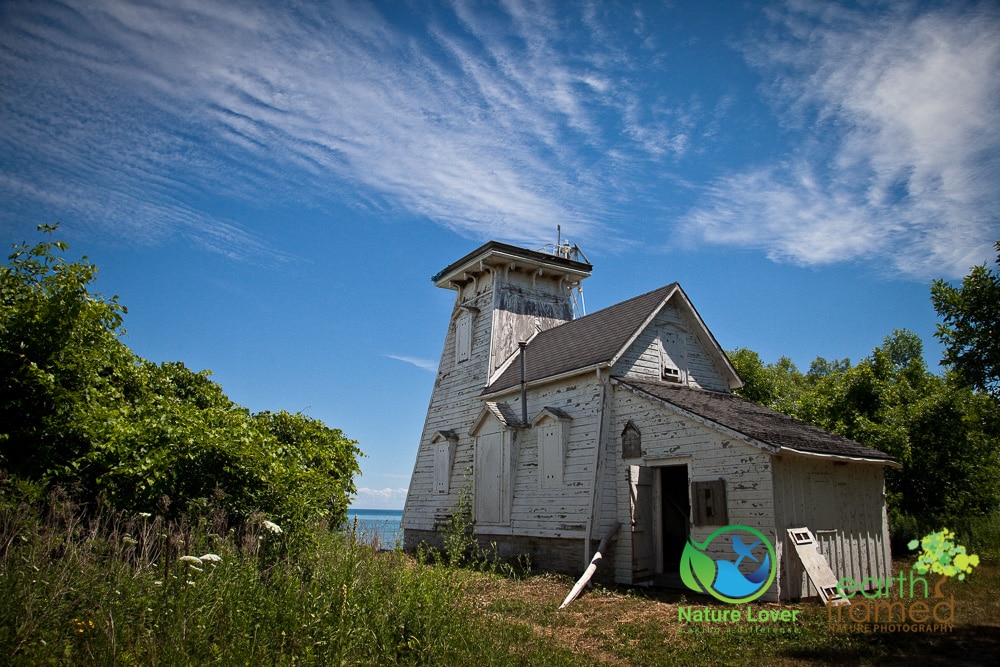
The lighthouse was automated in 1941 and in 1959 it was replaced with a steel skeleton tower. It is said that the structure, which was constructed using heavy timber corner posts, is still structurally sound. Many of the decorative features are still intact, like the pediments, brackets and window and door surrounds.
There are many public beach areas that you could swim at if you spent the day at the park. Maya found this spot, which was sandy and deep enough to swim. It was a pretty hot day, so it’s nice to have spots to keep yourself and your dog cool.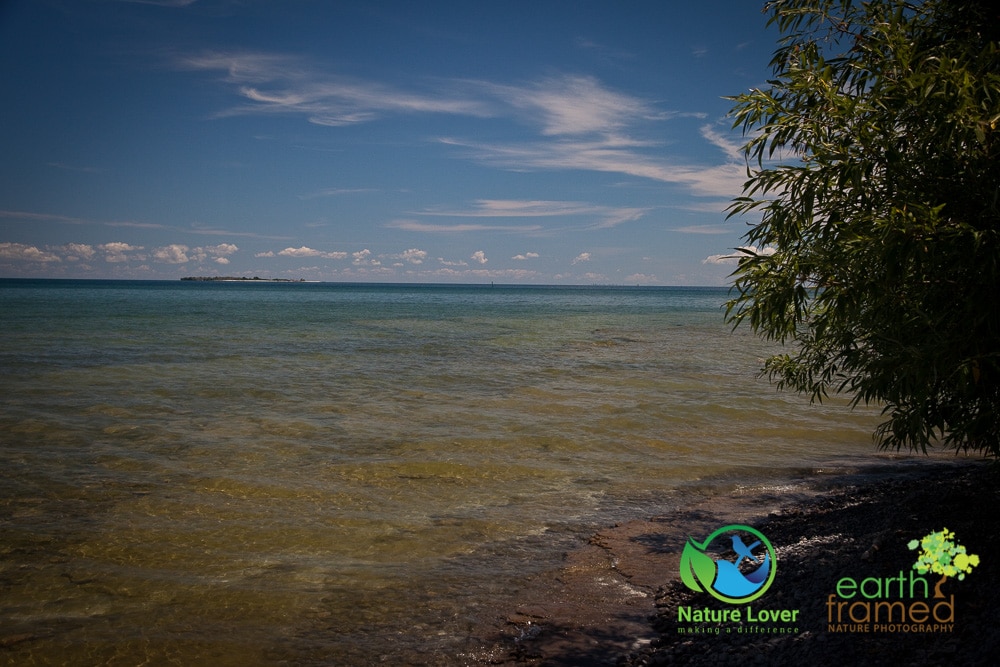
From in front of the lighthouse you can see the rock shelf the surrounds the outer part of the point. Off in the distance you will be able to check out False Duck Island. This is definitely a spot to have a good set of binoculars to see the bird colonies. The rocks shelves were covered in slippery plant life, so we didn’t let Maya swim here for fear she would slip and hurt herself.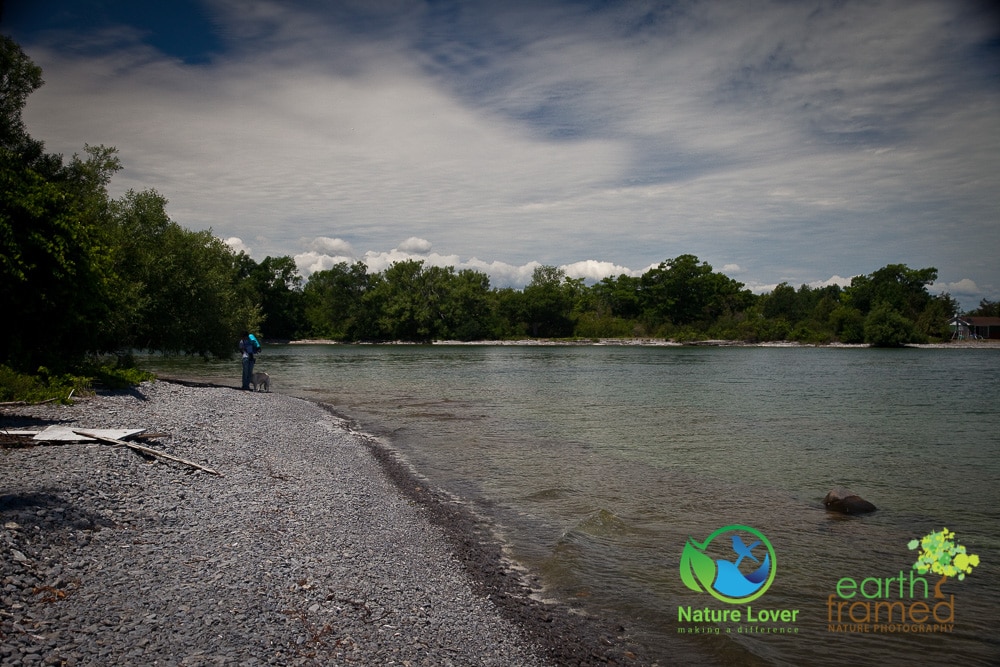
The beaches along the cove were much safer to swim at for Maya, although you can see unsafe debris that has either been dumped or washed up on shore during a storm.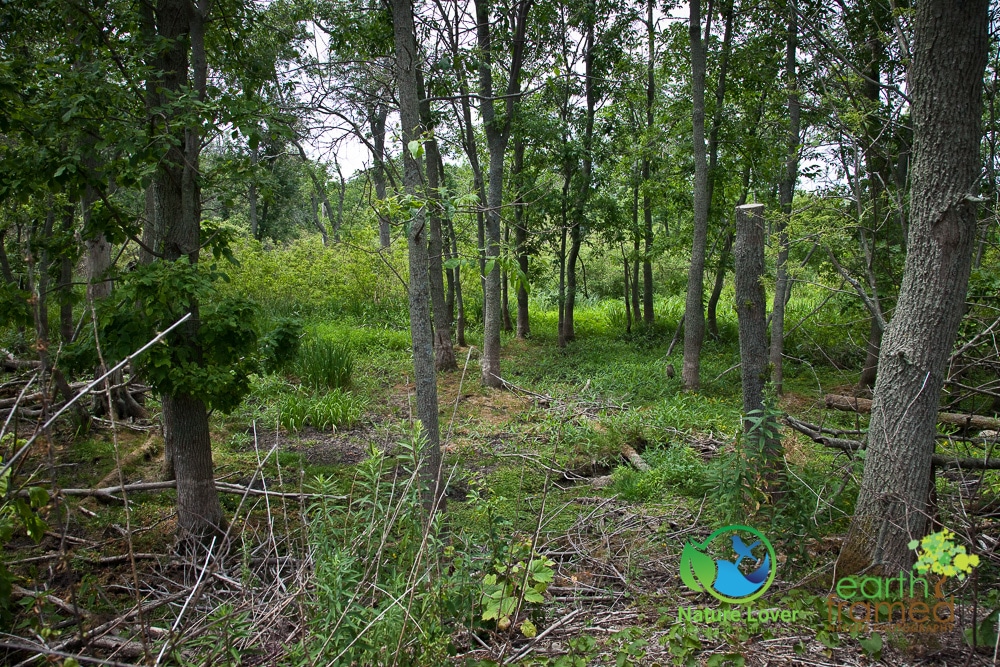
Along the road we came across this swamp-like area and spotted several different birds in the grasses, but we never actually identified any.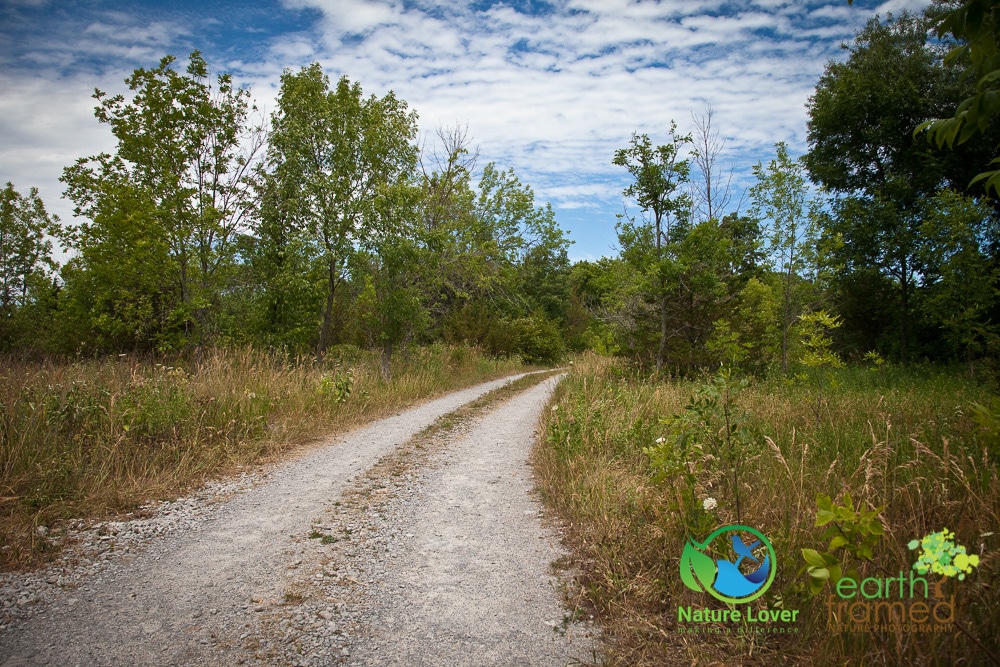
Unauthorized vehicles are not allowed past a certain point, so we parked our vehicle in the shade and walked out the the lighthouse. We walked past and through a variety of landscapes full of birds and wildflowers.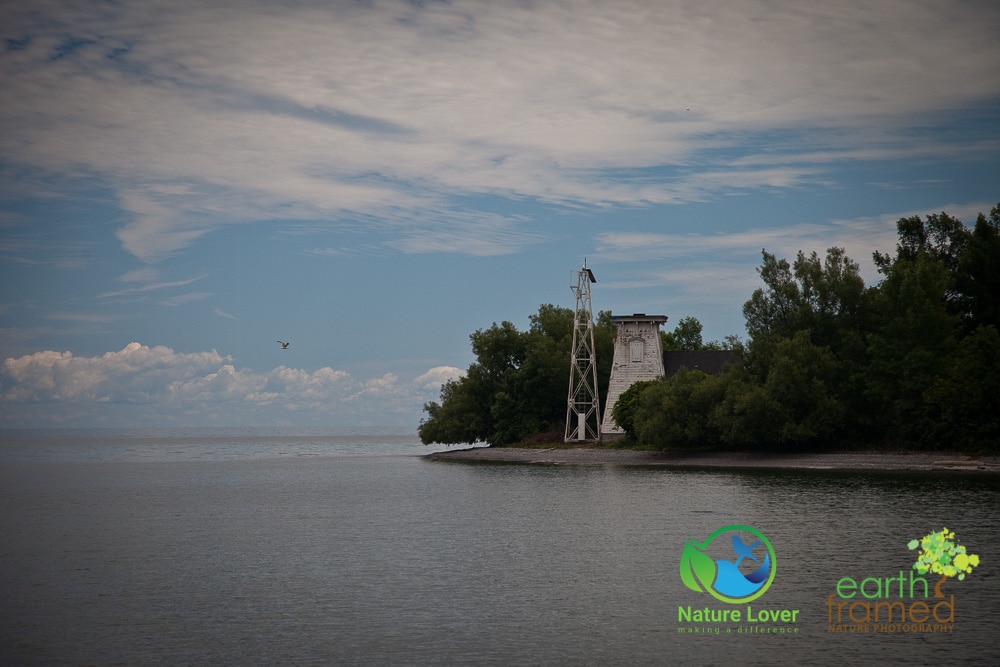
Here is a view of the lighthouse from across the inlet. This perspective shows a clear view of the newer steel tower that now acts as the point’s navigational beacon.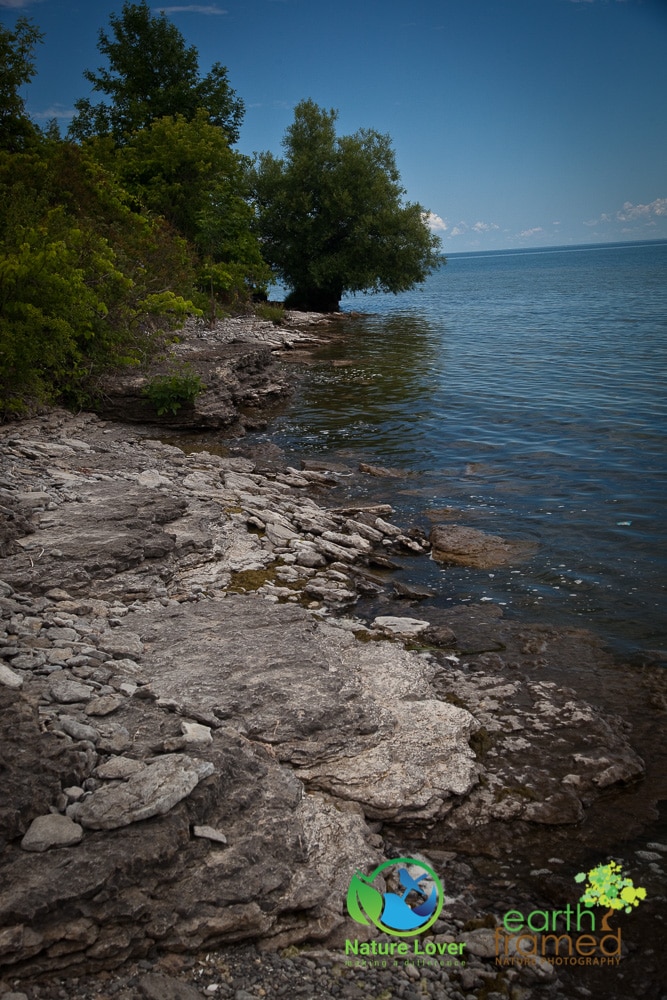
Limestone cliffs and shelves dominant the outer portions of the point. 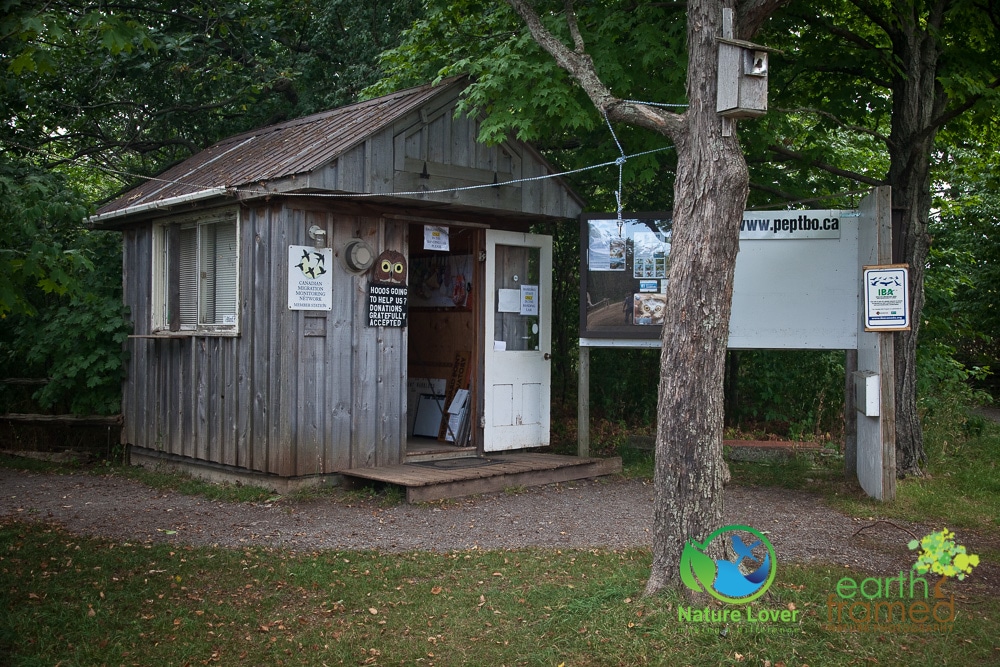
A primary feature of the point is the Prince Edward Point Bird Observatory. PEPtBO is a migration research station that is open to the public from April 10th to May 31st for the spring migration and August 15th to October 31st for the fall migration. During those times, this volunteer-run organization conducts a daily bird census, observation surveys and research projects.
Harebells and Vipers Bugloss was growing in the shallow earth on top of the limestone cliffs. The park is home to 27 kilometres of unique alvar habitat, that is becoming increasing rare due to development.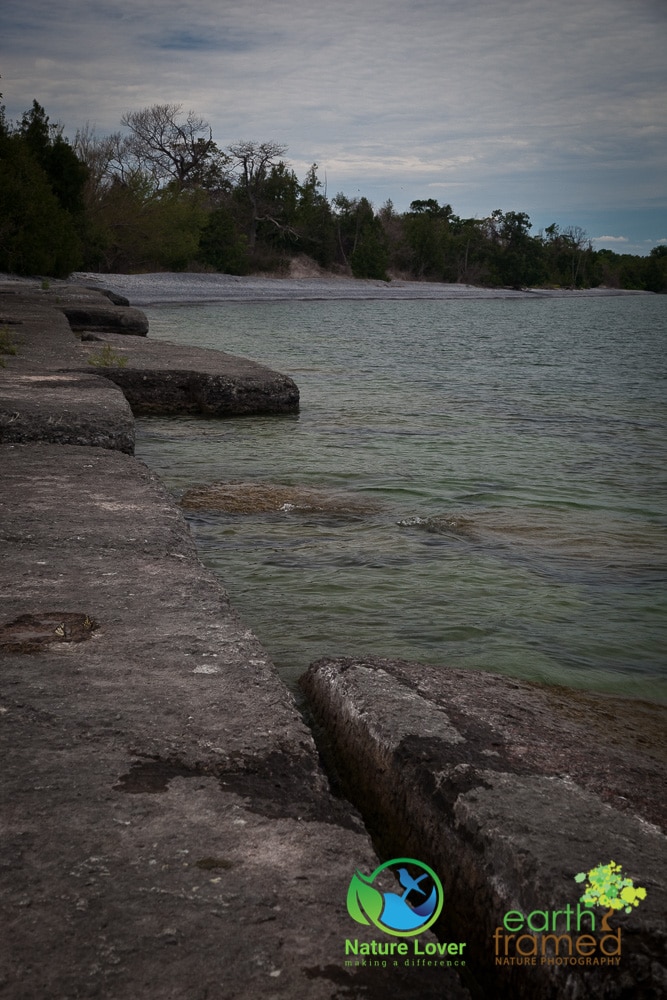
In the foreground you can see the limestone slabs jutting up out of the water, continually being shaped and eroded by the movement of the water. Off in the distance is one of many cobblestone beaches.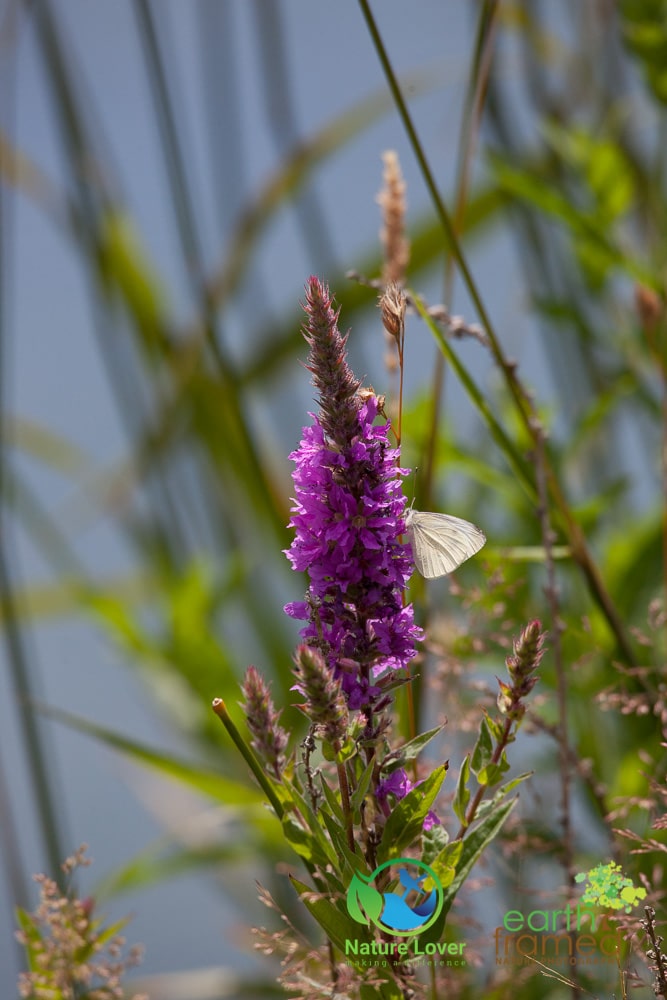
Not all of the wildflowers are native. As with everywhere else, non-native species, like this Loosestrife, invade natural habitats and cause negative effects on the local ecosystems.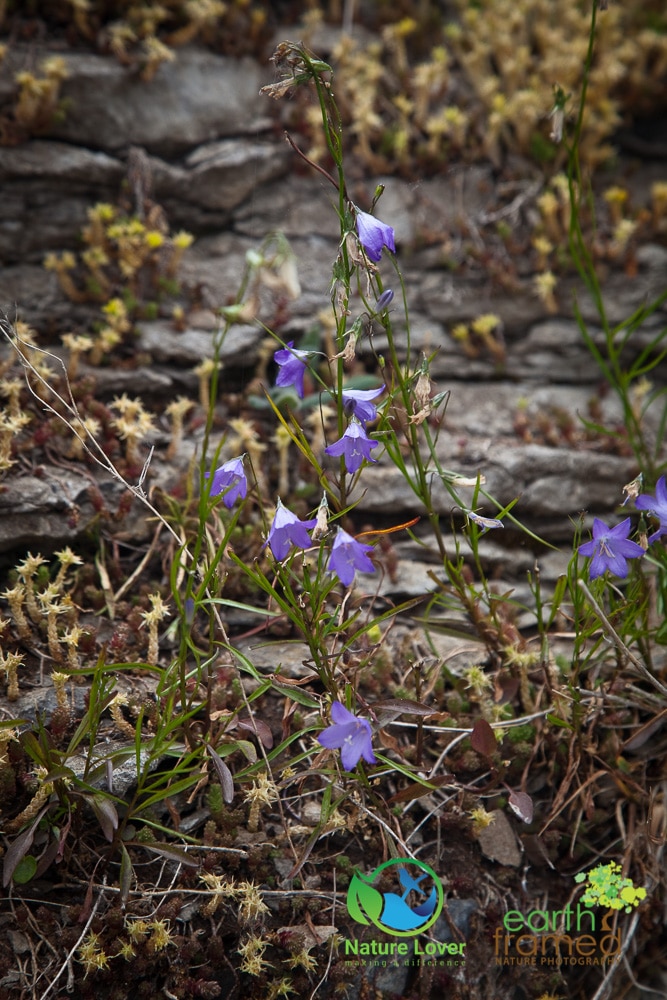
Harebells, which are native to the area, were found clinging to the limestone cliffs along the water’s edge.
Sources:
Environment and Climate Change Canada – Nature – Prince Edward Point National Wildlife Area. (n.d.). Retrieved from http://www.ec.gc.ca/ap-pa/default.asp?lang=En&n=741bb7b6-1
HistoricPlaces.ca – HistoricPlaces.ca. (n.d.). Retrieved from http://historicplaces.ca/en/rep-reg/place-lieu.aspx?id=20837&pid=0


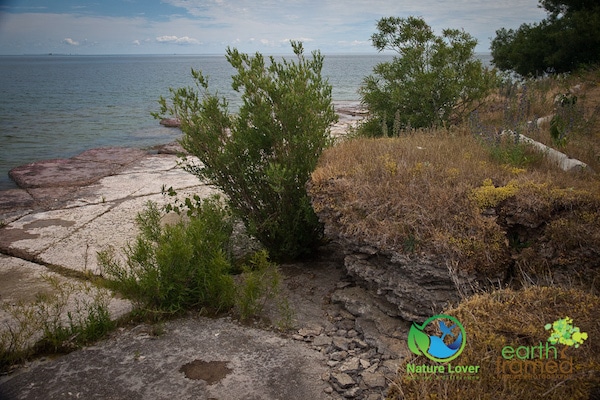
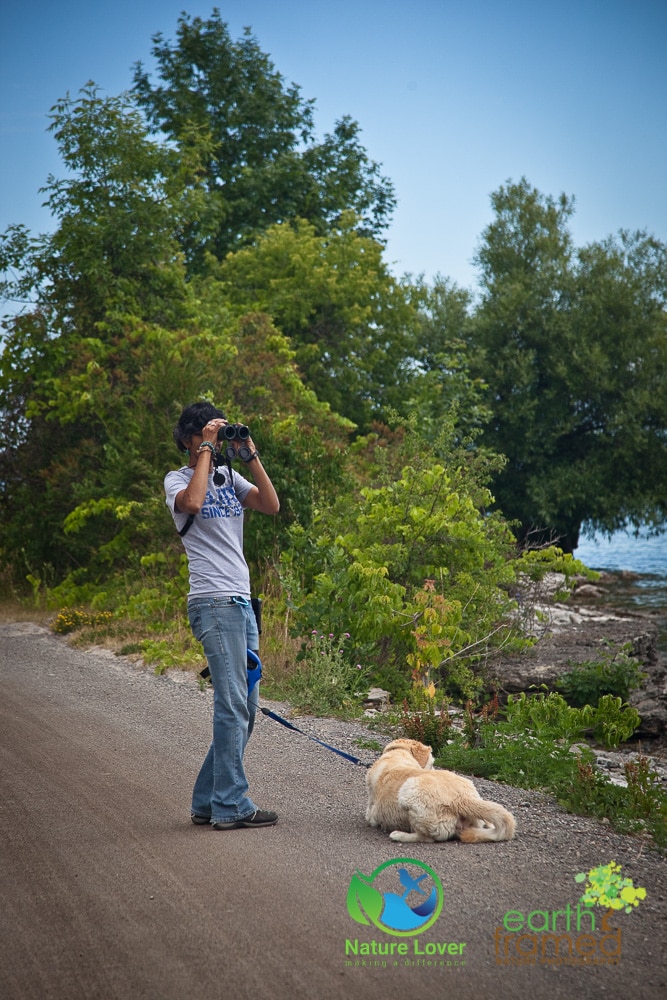
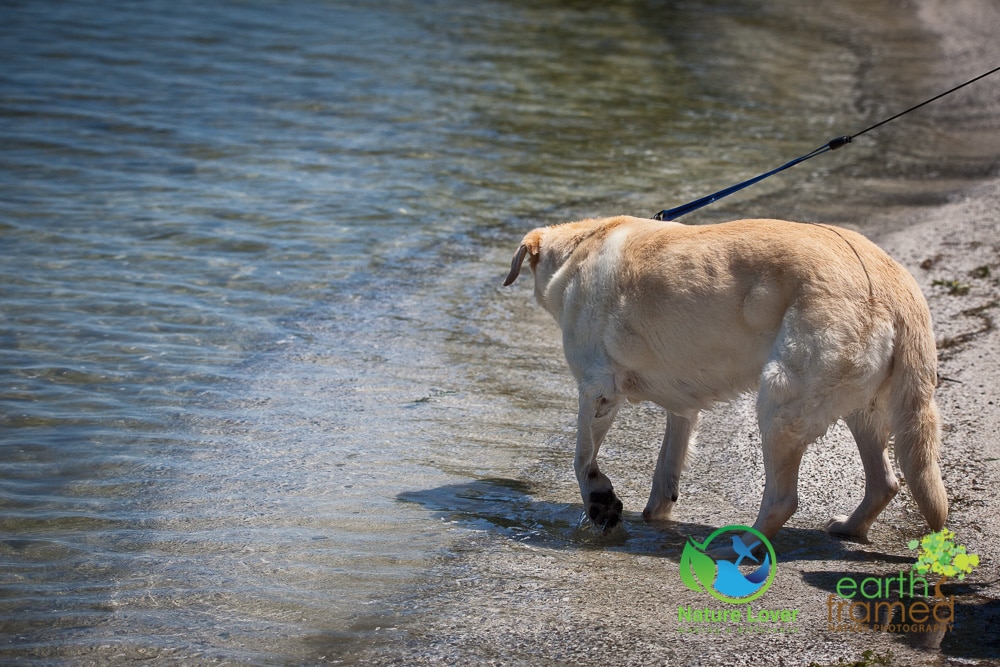
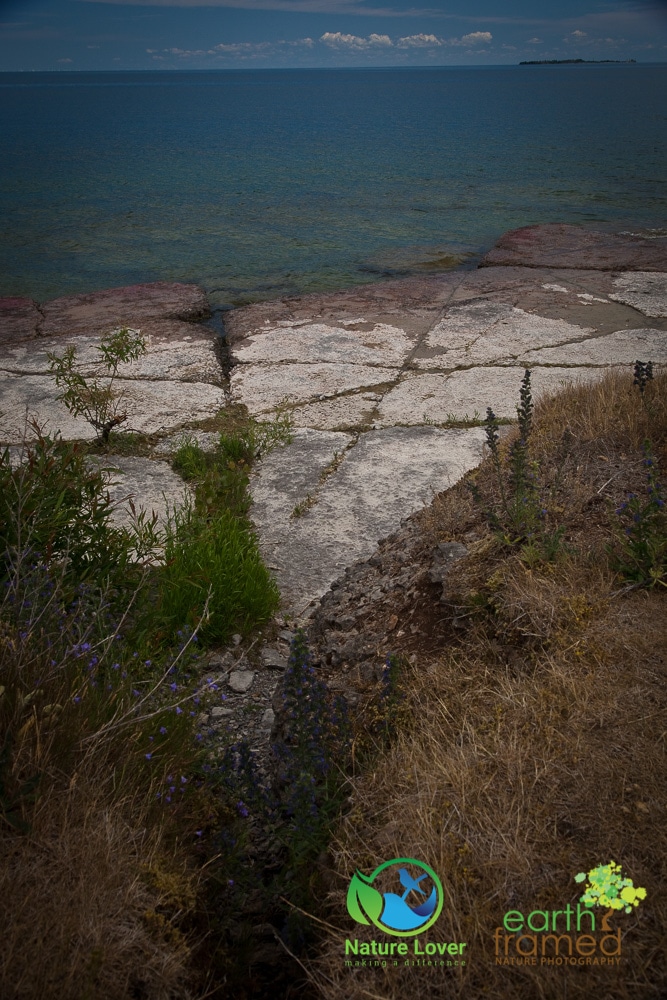
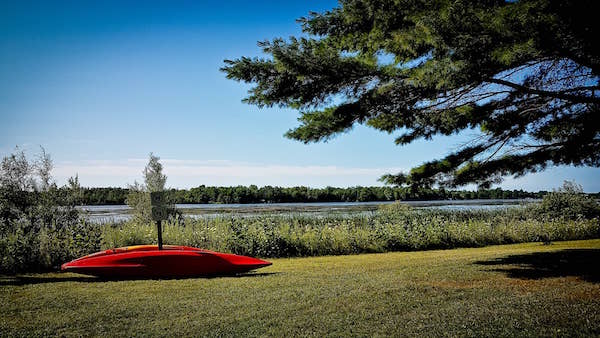
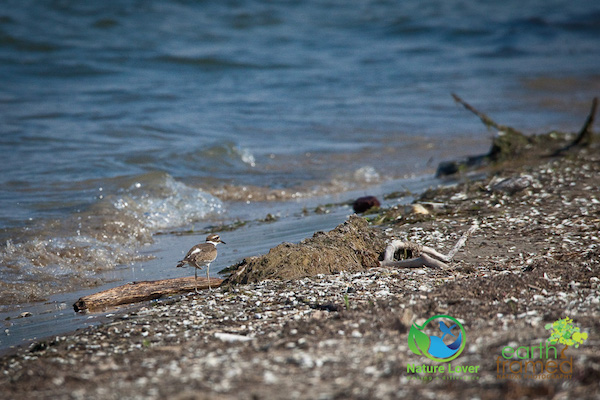
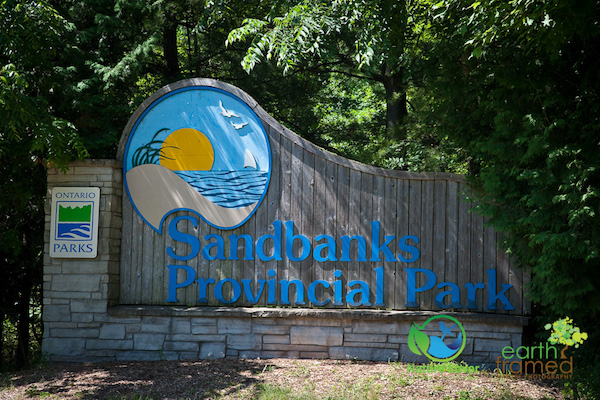
Comments(4)
Jordan Schleider says:
July 31, 2017 at 3:55 amAmazing post! This wildlife site is actually a great place to experience nature’s adventure.
Tricia McLellan-Dath says:
September 1, 2017 at 2:01 pmThanks, Jordan. We’re glad you enjoy it!
Jonathan Merage says:
July 28, 2017 at 12:54 amI am a true nature lover and I love to explore new places to spend my free time with nature. I am glad to read your blog. You really had a great time in Prince Edward Point. Thanks for sharing your amazing experience here.
Tricia McLellan-Dath says:
September 1, 2017 at 2:02 pmThank you, Jonathon. It was definitely a great spot for seeing wildlife.